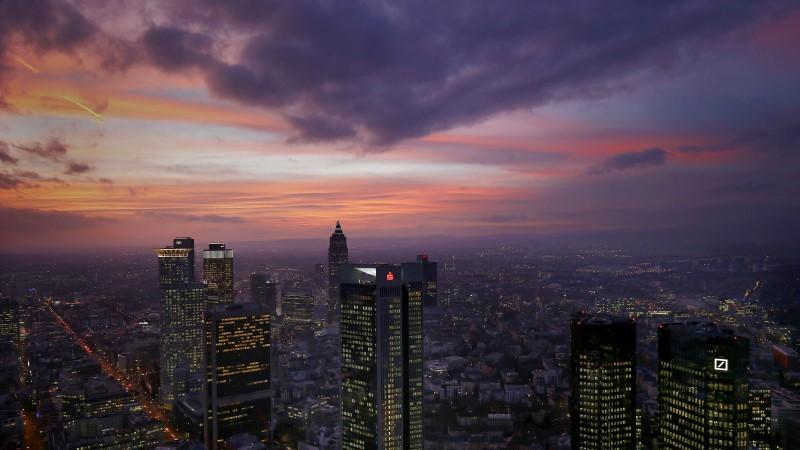For the first time in almost 20 years, German inflation has reached double digits.

For the first time in nearly 20 years, German inflation has reached double digits. A downtime recession is on the horizon for one of the world’s main industries as increased prices reduce consumers’ purchasing power. As a result, inflation in European Union countries that use the euro has reached double digits.
Following a periodic 9.1 increase in August, consumer prices in the 19-country Eurozone increased by a record 10.2 in September, according to data published on Friday by the EU’s statistical office, Eurostat. Inflation was just 3.4 just a short time ago.

Price increases have exceeded prospects and are currently at their loftiest position since the euro enrollment process began in 1997. The main factor, skipping 40.8 further than a time ago, was energy costs. Prices for food, alcohol, and cigarettes increased by 11.8%.
As the global frugality recovers from the COVID-19 outbreak, Russia’s natural gas force has been steadily reduced, and there have been detainments in the delivery of raw accoutrements and corridors. Gas prices have soared due to Russian cuts and energy-ferocious diligence similar to diseases and swords, claiming that they can no longer produce certain goods profitably.
The European Central Bank is adding interest rates to fight inflation by precluding advanced costs from being considered in people’s income and price prospects, but it’s unfit to do so on its own to cut energy prices. Advanced interest rates make borrowing, investing, and spending more precious for individuals and companies, which reduces demand for goods and controls inflation. The ECB’s preferred two inflation target for frugality has been largely exceeded.
With the United States Federal Reserve as its leader, central banks all over the world are fleetly hiking interest rates to lower inflation, which reached 8.3 in August. The UK’s 9 inflation rate last month was overhauled by the eurozone. European Union officers see Russian natural gas cuts as purposeful energy blackmail to press and divide European countries over Western warrants and their support for Ukraine. Russia assigns responsibility to technological issues.
/cloudfront-us-east-2.images.arcpublishing.com/reuters/6HBGK5OQERN7DKSS5ICLXW2DTY.jpg)
Because natural gas is used to produce energy, heat houses, and power factories, the increased gas prices have reverberated in higher heating bills and higher electricity expenditures. On Friday, the energy ministers of the European Union suggested a benediction duty on reactionary energy company gains as well as other ways to relieve the energy extremity. Individual nations have also allocated hundreds of billions to help people and businesses.
The government has blazoned plans to invest up to 200 billion euros($ 195 billion) to help with rising gas prices in Germany, Europe’s largest economy, where consumer prices have increased tenfold since September 9 and reached double digits for the first time in decades. The German inflation rose further than anticipated following the end of the government’s temporary support measures and the intensification of the energy extremity in Europe, reaching double digits for the first time since the preface of the euro more than 20 years ago.

The Federal Statistics Office said on Thursday that consumer prices increased 10.9 in September over the year before, exceeding August’s 8.8 increase. As Germany finished its summer-long gasoline and public transportation subventions, a rise in inflation was anticipated. Still, the European Central Bank, which is trying to control surging prices and whose steady rise is anticipated to shatter another record when numbers are revealed on Friday, will be concerned by the size of the acceleration.
With its advertisement to cap gas prices on last month, According to those with knowledge of the situation, Chancellor Olaf Scholz’s press would adopt at least €150 billion ($ 146 billion) for the design. The liability of exceeding the agreement estimate of 9.7 for the eurozone, according to a check of judges, increases as a result of Germany’s inflation data, despite Spain’s surprise disclosure of a steeper-than-anticipated September downturn on Thursday.
In any case, the ECB is planning another significant increase in interest rates after this month’s record 75 basis-point increase that followed the Federal Reserve’s lead. Increases will be bandied about at the forthcoming sessions, according to President Christine Lagarde, while Vice President Luis de Guindos stated last month that policymakers must act.
The three members of the Governing Council from the Baltic area, where price rises have accelerated over the past 20 days, unanimously supported a reiteration of the three-quarter-point hike from September on October 27. Their Austrian, Slovene, and Slovenian counterparts share this viewpoint.
The money requests presently prognosticate a 60 percent liability that the deposit rate will increase from the current 0.75 to 1.5. In an interview conducted on Wednesday in Vilnius, Martins Kazaks of Latvia stated that “the coming step still has to be large since we’re still far from rates that are compatible with two inflations.” Let’s increase the rates and take a small step.

The picture for the 19-nation euro area is deteriorating, complicating the ECB’s worries as Russia further restricts energy forces before the downtime to stave off Western warrants over its war in Ukraine. As the cost of living problem succeeds, judges are decreasingly prognosticating a recession in the Eurozone. Data released on Thursday showed that confidence has fallen to levels last seen during the epidemic. Germany, though, is nearly set to see depression.
The largest frugality in Europe’s leading exploration institutions lowered its prognostications earlier in the day, projecting a 0.4 increase in the product in 2019. This is true indeed, though they anticipate inflation to pick up brume and average 8.8 in 2023 as opposed to 8.4 this time. Before today’s advertisement of the gas price restriction, the government tried to lessen the burden on homes and companies by offering relief packages worth close to €100 billion.
Edited by Prakriti Arora




